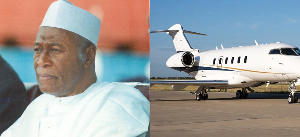The first batch of traditional rulers trained at the Otumfuo Centre for Traditional Leadership (OCTL) at the University of Professional Studies, Accra (UPSA) have graduated.
The Paramount and Divisional Chiefs who participated in the four day-workshop were trained in the areas of land administration and management, conflict resolution and gender issues.
Professor Joshua Alabi, the Vice Chancellor, UPSA, in his closing remarks, said there has always been leadership programmes for managers and politicians in most universities, however, UPSA had been innovative in organising a leadership programme for traditional leaders.
He said the chieftaincy institution played an essential role in the nation’s governance and therefore the programme was aimed at making sure that chiefs were successful in governance.
Prof Alabi announced that a conference would be organised by the University in August for traditional leaders from Ghana and East Africa during the launch of the Centre.
The OCTL, which is one of the four Centres of Excellence, was established by the UPSA, to spearhead the development and modernisation of the chieftaincy institution in Ghana.
Naa Prof John S. Nabila, the President of the National House of Chiefs, said the programme had been long overdue and lauded UPSA for organizing the the programme.
He urged his fellow chiefs to put the knowledge they had acquired at the Centre into practice for the benefit of the people.
Lepowura Alhaji Mohammed Nuru-Deen Jawula, the Consulting Director of the OCTL, appealed to government to ensure that chiefs and people of the Western Region benefited from the oil production.
Dr Albert Kan Dapaah, the Consulting Director for Public Accountability at the Centre, advised chiefs to be transparent and accountable to their people.
In an interaction with the Ghana News Agency, Nii Adjei Kraku II, the Tema Mantse, said the knowledge gained during the course would enhance the performance of participants in their various traditional areas.
Regional News of Saturday, 16 May 2015
Source: GNA

















